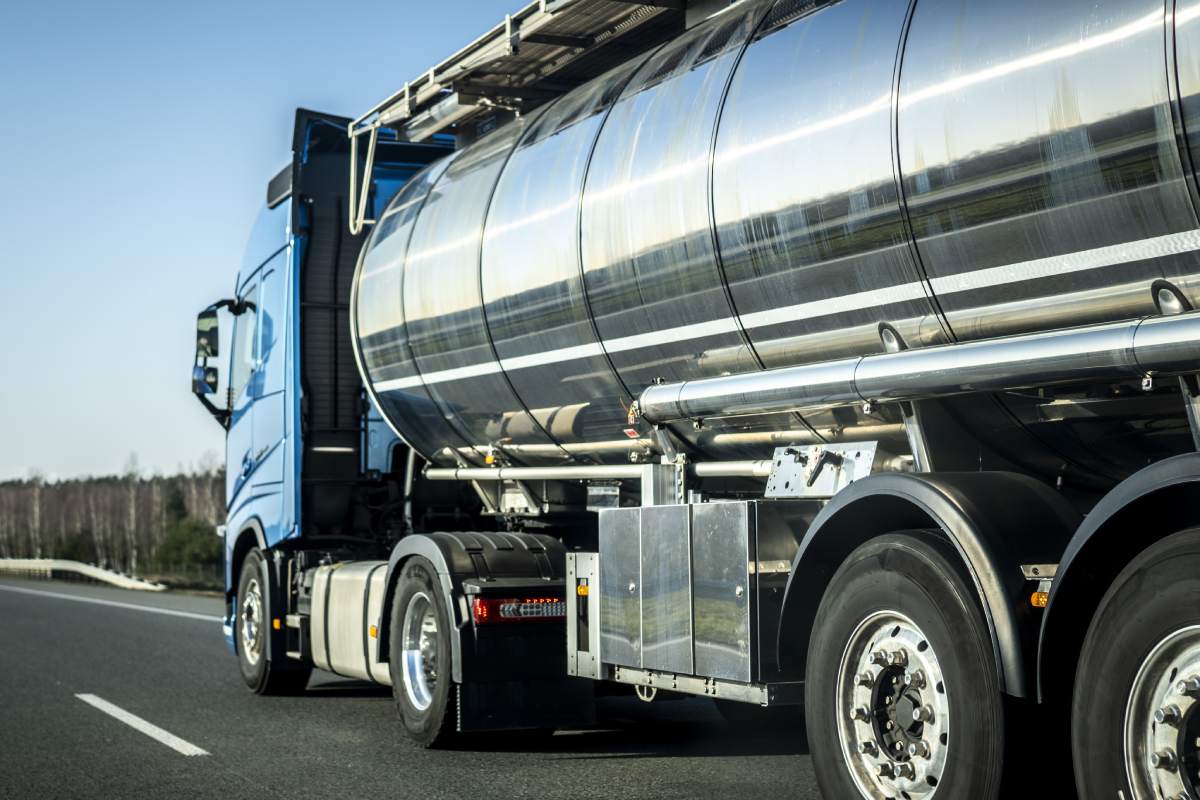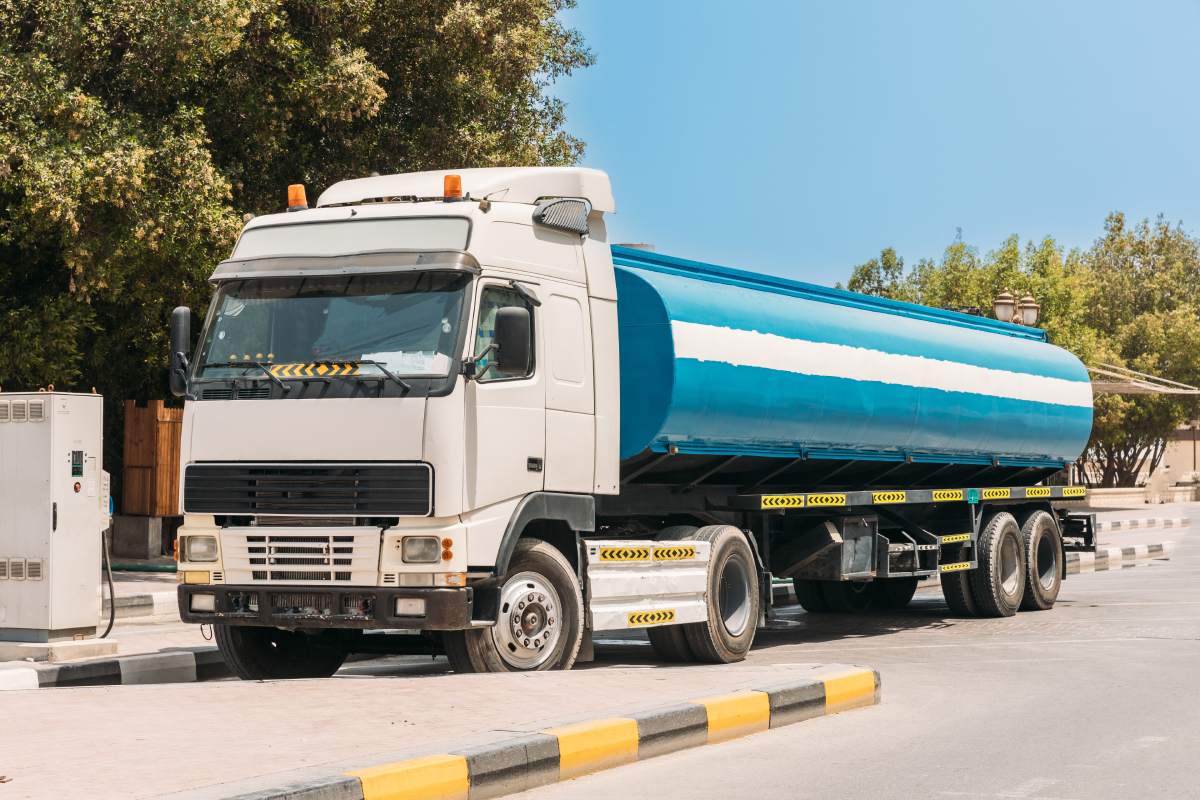In Australia, AdBlue is now a key ingredient for modern diesel engines, especially in trucks and heavy machinery.
With tough emissions standards in place, AdBlue is vital for cutting down pollutants such as nitrogen oxides (NOx), helping to make diesel vehicles kinder to the environment. Even with the extra expense, diesel engines are still the go-to for the industrial sector needing robust performance, fuel economy, and lasting reliability.
This article explores why AdBlue is specifically necessary for diesel engines, the reasons behind the prevalent use of diesel in trucks and heavy machinery, and the associated costs of AdBlue in Australia.
Why is AdBlue Only Necessary For Diesel Engines?
AdBlue is a crucial component in modern diesel engines, particularly those that comply with stringent emissions standards. However, it’s not something you’ll encounter in petrol engines. Understanding why AdBlue is exclusive to diesel engines requires a look into the nature of diesel combustion, the pollutants it produces, and how AdBlue helps mitigate those pollutants.
The Basics of Diesel Engines
Diesel engines operate differently from petrol engines. They use compression ignition rather than spark ignition, meaning that the fuel is compressed to the point where it ignites automatically. This high compression ratio makes diesel engines more efficient than petrol engines, giving them better fuel economy and more torque.
However, this efficiency comes with a downside: diesel engines produce higher levels of certain harmful pollutants, particularly nitrogen oxides (NOx). NOx is a group of gases that contribute to air pollution and have been linked to respiratory problems and environmental issues like acid rain.

Why Diesel Engines Produce More NOx
The production of NOx in diesel engines is primarily due to the high temperatures and pressures at which diesel fuel combusts. The hotter and more pressurized the environment, the more likely it is for nitrogen and oxygen in the air to combine and form NOx. While petrol engines also produce NOx, the levels are significantly lower because of their different combustion process and lower operating temperatures.
The Role of AdBlue
AdBlue is a solution made of urea and deionized water, and it plays a critical role in reducing the NOx emissions from diesel engines. The technology used for this is called Selective Catalytic Reduction (SCR). Here’s how it works:
- Injection into Exhaust System: AdBlue is injected into the exhaust stream of the diesel engine, just before the exhaust gases pass through the SCR catalyst.
- Chemical Reaction: Once AdBlue comes into contact with the hot exhaust gases, it breaks down into ammonia (NH3) and carbon dioxide (CO2). The ammonia then reacts with the NOx in the exhaust gases, converting it into harmless nitrogen (N2) and water vapour (H2O).
- Reduction of NOx: This chemical reaction effectively reduces the NOx emissions by up to 90%, making diesel engines much cleaner and allowing them to meet stringent environmental regulations.
Why Petrol Engines Don’t Need AdBlue
Petrol engines produce significantly lower levels of NOx compared to diesel engines, largely due to their lower combustion temperatures. They rely on a different type of emission control system, primarily catalytic converters, which are effective at reducing NOx emissions to acceptable levels without the need for additional treatments like AdBlue.
Moreover, petrol engines produce more carbon monoxide (CO) and hydrocarbons (HC), which are different pollutants that require different control technologies. Since the levels of NOx in petrol engines are manageable with existing technologies, there’s no need for AdBlue in these engines.
Why Do Most Trucks and Heavy Machineries Keep Using Diesel Engines If They Pollute More Emission?
Most trucks and heavy machinery use diesel engines despite their higher emissions for several key reasons, primarily related to performance, efficiency, and durability. Let’s explore why diesel engines are the preferred choice for these heavy-duty applications, even with their environmental impact.
1. Power and Torque
Diesel engines are renowned for their ability to produce high torque at low RPMs (revolutions per minute). Torque is the force that turns the wheels and is crucial for moving heavy loads, making it a key factor in the performance of trucks and heavy machinery.
This high torque output allows diesel-powered vehicles to pull and carry much heavier loads than those powered by petrol engines. In industries like construction, agriculture, and freight, where moving large amounts of weight is a daily requirement, the superior torque of diesel engines is indispensable.
2. Fuel Efficiency
Diesel engines are more fuel-efficient than petrol engines, especially under load. This efficiency stems from the higher energy content of diesel fuel and the greater compression ratio in diesel engines. For trucks and heavy machinery that often run for long hours or cover extensive distances, fuel efficiency translates into significant cost savings.
In the transport and logistics industries, where fuel is a major operating expense, the better fuel economy of diesel engines is a critical factor. Even with the higher upfront cost of diesel engines and the need for emission control systems like AdBlue, the long-term savings in fuel costs make diesel the more economical choice.

3. Durability and Longevity
Diesel engines are built to withstand the high stresses of heavy-duty work. They have robust construction, with stronger components designed to handle the high pressures of diesel combustion. This durability means diesel engines typically have a longer lifespan than petrol engines, which is vital for vehicles and machinery that need to operate reliably over many years and many thousands of kilometres.
For businesses that rely on trucks and heavy machinery, the durability of diesel engines reduces downtime and maintenance costs, further justifying their use despite their environmental impact.
4. Range and Refueling
Diesel engines offer a greater range between refuelling stops, which is crucial for trucks that cover long distances and heavy machinery that operates in remote areas. Diesel fuel is also more energy-dense, meaning that a given volume of diesel provides more energy than the same volume of petrol.
For long-haul trucking, where routes can span thousands of kilometres, the ability to travel longer distances on a single tank of fuel is a significant advantage. Similarly, in industries like mining and forestry, where machinery may be far from fuel stations, the longer operating range of diesel engines is invaluable.
5. Adapting to Emission Standards
While it’s true that diesel engines produce more NOx and particulate matter, advancements in emission control technologies have made modern diesel engines much cleaner than older models. Systems like Selective Catalytic Reduction (SCR) and Diesel Particulate Filters (DPF) have been developed to reduce these harmful emissions, allowing diesel engines to meet stringent environmental regulations.
Even with these controls in place, diesel engines remain the best option for heavy-duty applications because of their unmatched combination of power, efficiency, and durability.
Is AdBlue Expensive in Australia?
In Australia, the cost of AdBlue can vary depending on several factors, including location, the quantity purchased, and the supplier. However, in general, AdBlue is relatively affordable compared to the overall costs of running a diesel vehicle, particularly for those in industries like transport and logistics.
Factors Affecting AdBlue Prices
- Quantity Purchased:
- Bulk Purchases: For businesses that operate fleets of trucks or heavy machinery, purchasing AdBlue in bulk (e.g., in large containers or by the drum) with Ecoblue Bulk Adblue Suppliers usually results in a lower price per litre. Bulk buying is common in industries that use significant amounts of AdBlue, as it offers better value.
- Smaller Quantities: For individual vehicle owners or small businesses, AdBlue is available in smaller quantities, such as 10-liter or 20-liter containers. While convenient, the price per litre is generally higher for these smaller purchases.
- Location:
- Urban vs. Rural: In major cities and urban areas, AdBlue is more readily available and can be found at most service stations, leading to more competitive pricing. In contrast, in remote or rural areas, where supply might be less frequent, prices can be slightly higher due to transportation costs.
- Supplier:
- Prices can vary between different suppliers, such as service stations, automotive stores, and direct industrial suppliers. Some suppliers offer loyalty programs or discounts for regular customers, which can help reduce costs over time.

General Price Range
As of recent data, the price of AdBlue in Australia typically ranges from around AUD $1 to $2 per litre when purchased in bulk. For smaller containers, the price might be slightly higher, ranging from AUD $2 to $3 per litre.
Cost Impact
For most users, the cost of AdBlue is relatively minor compared to the overall fuel and maintenance costs of operating a diesel vehicle. AdBlue consumption generally amounts to about 1-2% of diesel consumption, so for every 100 litres of diesel fuel used, a vehicle might consume around 1-2 litres of AdBlue. Given this low usage rate, even a small increase in the price of AdBlue doesn’t significantly impact the overall cost of operating a diesel vehicle.
Availability and Market Trends
The availability of AdBlue in Australia has generally been stable, with most service stations and automotive suppliers stocking it regularly. However, market trends, such as global supply chain disruptions or increased demand due to tighter emissions standards, can influence both the availability and price of AdBlue.
Conclusion
While diesel engines have long been the backbone of heavy-duty industries, their environmental impact has led to the adoption of emission-reducing technologies like AdBlue. Although AdBlue adds an extra layer of cost to operating diesel vehicles, its benefits in reducing NOx emissions are crucial for meeting Australia’s strict environmental regulations.
Diesel engines continue to dominate in applications requiring high power, torque, and efficiency, and with advancements in emission control, they remain a viable choice for industries across Australia.
Ultimately, the cost of AdBlue is a small price to pay for the longevity, efficiency, and compliance that diesel engines offer in the demanding conditions of heavy-duty work.










